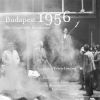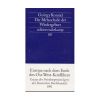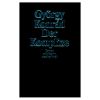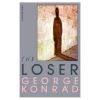Legfrissebb kiadás

|
Falevelek a szélben Magvető kiadó, 2017 |
Winning the Millennium Match (W. L. Webb, The Hungarian Quarterly, Summer 1996)
Kapcsolódó könyv:
The melancholy of rebirth: essays from post-communist Central Europe, 1989-1994 - Harcourt Brace, 1995
The melancholy of rebirth: essays from post-communist Central Europe, 1989-1994 - Harcourt Brace, 1995
[...]
In "Thoughts on the Border," the earliest of these "post-communist" essays, György Konrád talks with understandable pride about winning "this end-of-the-millennium match," but already the short span of years that separates the writing of those words in August 1989 from the present seems like a journey from another age. Eric Hobsbawm is surely right when he talks about "the short twentieth century", lasting from 1914 to 1989, the latter year looking more and more like an end than a beginning. Why it seems so remote is that we are already experiencing the strangeness of a new age, the first exhalations of the new millennium, bringing intimations of change hardly to be understood in the old language of economics and power relations. Triumphalism over the defeat of communism and the victory of economic liberalism at the end of history has dissolved in a profound uneasiness. Replika Klokker NorgeYes, communist utopianism has run into the sands, but the market utopianism which in East Central Europe in the early years of the Great Alteration seemed still so exciting an ideological alternative, is beginning to look terminal in the rich world now, while the radical individualism which was its social dimension has become so dangerously dysfunctional in America that the quest for something to fix it with is a major preoccupation of social and political scientists.
Much of this has been emerging with some clarity only in the last year or so, and it is a mark of Konrád's steadiness and political intelligence that while he was writing too soon to address our fin-de-siécle loss of confidence directly, these essays carry ample warning of the dangers of simply switching one's ideological investments out of one set of global solutions and allegiances into another. Watching the turncoats of the former communist elite energetically pulling the strings of their old connections to "parachute" into positions of economic power in the new order, he sees that already in 1989 for them, "The prime criterion for anything is currently: "How does it work in America." Give "the satellite mentality a great power," he adds, " - any great power - and it will swear loyalty to it."
His sturdy brand of political liberalism, however, is tempered with pragmatism, and he follows that with the thought that a sensible satellite mentality will try to work out what the costs as well as the possible gains of such a loyalty may be. Thus while, in the title essay, he accepts that "capitalism is the price we have to pay fo and welcomes the return of the bourgeoisie and the growth of the middle class "in legal leaps and illegal bounds", he doesn't omit to record also that "As far as the poor are concerned, nothing has changed: they are still ignored."
W. L. Webb
is a former Literary Editor of The Guardian and Fellow of Nuffield College, Oxford. He gave the fourth Guardian Lecture in Oxford on Press and Politics in East Central Europe, and is at present working on a book about Europe's eastern borderlands.










































































































































